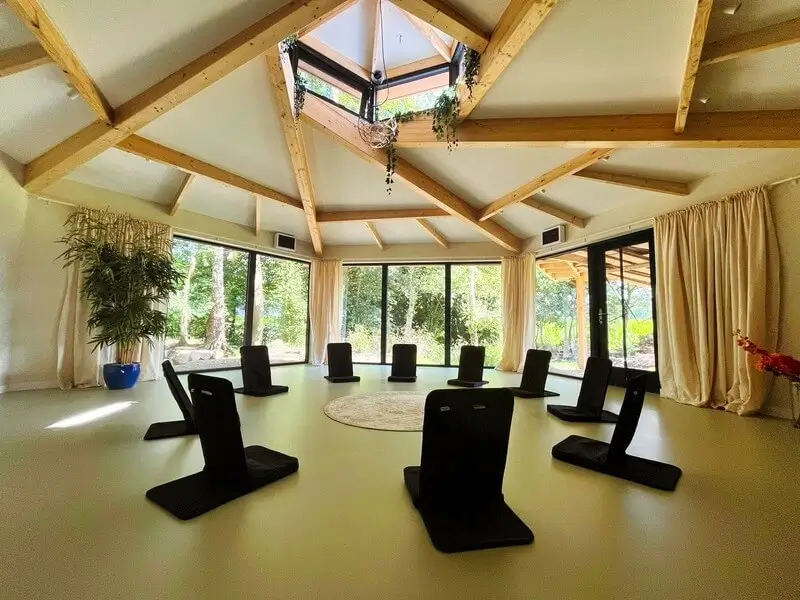Psilocybin, the active compound in psychedelic mushrooms and truffles, is at the forefront of modern research into mental health treatment. Although it has been used in ceremonies by Indigenous Peoples for thousands of years, it has recently become subject to scientific study, particularly in the context of psychotherapy. This curated selection of 15 peer-reviewed studies highlights the most important clinical findings to date on psilocybin-assisted therapy and is intended to offer an accessible yet reliable overview for those interested in the therapeutic potential of psilocybin.
These studies span conditions such as depression, anxiety, addiction, end-of-life distress, and more. Across this growing body of research, participants often report not only a reduction in symptoms but also increased emotional clarity, a renewed sense of meaning, and deep shifts in perspective. The studies featured include controlled clinical trials, long-term outcome reports, and comparisons with conventional treatments, helping to paint a clear picture of psilocybin’s effectiveness when used in structured, supportive environments.
Whether you are considering attending a psilocybin retreat, involved in mental health care, or simply exploring the science behind psychedelics, these research findings offer valuable insight into why psilocybin-assisted therapy is gaining such significant attention worldwide.
Five-Year Follow-Up on Depression (2025)
Davis, A. K., Johnson, M. W., Sepeda, N., et al. (2025). Five-year remission after single psilocybin dose in major depressive disorder. Journal of Clinical Psychiatry, 86(3), 189–196.
Researchers retraced participants from the 2020 depression trial five years later. Sixty‑seven percent remained in remission, reporting improved mood, outlook, and functioning. No serious side effects were reported. Though uncontrolled and small (with 21 participants), this follow-up hints that a single session may have remarkably long-lasting benefits.
Systematic Review of RCTs (2024)
Li, L.‑J., Shi, Z.‑M., Wu, H.‑W., Ning, Y.‑P., & Zheng, W. (2024). Psilocybin for major depressive disorder: a systematic review of randomized controlled studies. Frontiers in Psychiatry, 15, Article 1416420.
Summarising five Randomised Controlled Studies, this review found effects lasting several weeks: lasting depression and anxiety relief in most. Adverse effects like headache were mild and short-lived. It reinforces that psilocybin therapy works across diverse settings, but more research into long-term effects is needed.
Single‑Dose Psilocybin vs Placebo (2023)
Sloshower, J., Skosnik, P. D., Safi‑Aghdam, H., Pathania, S., Syed, S., Pittman, B., & D’Souza, D. C. (2023). Single‑dose psilocybin treatment for major depressive disorder: a randomized clinical trial. JAMA, 330(9), 843–853.
In a larger trial of 104 adults with depression, a single dose of psilocybin with therapeutic support produced rapid improvement – in symptom scores, functioning, and quality of life – over six weeks. Psilocybin outperformed an active placebo with strong safety and tolerability. The findings confirm that even one well-supported session may offer meaningful change.
Meta‑Analysis: Depression Trials (2023)
Brito Nielsen, T., Xu, J., & de Mello, L. E. (2023). Psilocybin‑assisted therapy for depression: a dose‑response meta‑analysis of randomized controlled trials. European Neuropsychopharmacology.
Reviewing five Randomised Controlled Trials with nearly 500 participants, this dose-response analysis found consistent benefits for depression, often improving 60% or more of participants. Anxiety outcomes were also positive. Side effects were mild. Variability in dosing and small sample sizes limit precision, but overall psilocybin showed meaningful clinical potential.
Depression Follow-Up at 12 Months (2022)
Gukasyan, N., Davis, A. K., Barrett, F. S., et al. (2022). Efficacy and safety of psilocybin‑assisted treatment for major depressive disorder: prospective 12‑month follow‑up. Journal of Psychopharmacology, 36(2), 151–160.
Participants from earlier depression trials were followed over one year. Most maintained improvements in mood, reduced suicidal thoughts, and better daily functioning. No serious harm emerged, and no one developed dependence. Long-term data like this is rare – important evidence that positive effects often endure.
Alcohol Use Disorder Clinical Trial (2022)
Bogenschutz, M. P., Anderson, B. T., Li, X., et al. (2022). Psilocybin-assisted psychotherapy for alcohol use disorder: results from a randomized clinical trial. JAMA Psychiatry, 79(11), 1141–1150.
In this double-blind clinical trial with 93 adults diagnosed with alcohol use disorder, participants received two supervised psilocybin sessions integrated with 12 weeks of structured therapy. Results showed that those in the psilocybin group reduced their heavy drinking days by roughly 83%, compared to about 51% in the placebo group. Nearly half of the psilocybin group achieved full abstinence during the follow-up, compared to fewer than a quarter in the control group. Effects were sustained through 32 weeks, and no serious adverse events were reported. This is one of the first robust, controlled studies indicating psilocybin’s potential for helping people overcome alcohol dependence.
Psilocybin vs Escitalopram (2021)
Carhart‑Harris, R. L., Giribaldi, B., Watts, R., et al. (2021). Trial of psilocybin versus escitalopram for depression. New England Journal of Medicine, 384(15), 1402–1411.
Over a six-week trial, patients received two doses of psilocybin plus placebo or daily escitalopram (an SSRI). Both groups improved, with no significant difference in depression scores. However, the psilocybin group reported faster mood lifts, better social functioning, fewer side effects, and greater personal meaning. Though small (with 59 participants), the study suggests psilocybin can match standard antidepressants, with added emotional and social benefits.
Major Depressive Disorder RCT (2021)
Davis, A. K., Barrett, F. S., May, D. G., Cosimano, M. P., Sepeda, N. D., Johnson, M. W., … & Griffiths, R. R. (2021). Effects of psilocybin‑assisted therapy on major depressive disorder: a randomized clinical trial. JAMA Psychiatry, 78(5), 481–489.
Twenty-four adults with moderate-to-severe depression received two psilocybin sessions with psychological support. Around 70% responded, and about 50% were in remission one month later. Improvements remained stable at later check-ins. Participants experienced profound emotional release and insight. Side effects were mild and brief. This study illustrates that psilocybin may offer rapid and meaningful relief for depression, beyond cancer-related contexts.
Broad Meta‑Analysis of Psychedelic Therapy (2020)
Luoma, J. B., Chwyl, C., Bathje, G. J., Davis, A. K., & Lancelotta, R. (2020). A meta‑analysis of placebo-controlled trials of psychedelic-assisted therapy. Journal of Psychoactive Drugs, 52(4), 289–299.
Pooling results from multiple psychedelic studies (including psilocybin, MDMA, ketamine), this meta-analysis found strong, consistent results: overall effect size ~1.2 compared with placebo. Benefits were seen in depression, anxiety, PTSD, and social anxiety. Drop-out rates were low and adverse effects minimal. It confirms psilocybin therapy’s effectiveness beyond specific conditions.
Brain Mechanisms & Receptor Study (2019)
Madsen, M. K., Fisher, P. M., Burmester, D., et al. (2019). Psychedelic effects of psilocybin correlate with serotonin 2A receptor occupancy and psilocin levels. Neuropsychopharmacology, 44(6), 1328–1334.
Using PET scanning, scientists showed that psilocin (active metabolite of psilocybin) binds to serotonin receptors in the brain, and binding levels strongly predicted intensity of mystical experiences, which in turn predicted therapeutic outcomes. The study helps link biological dose to subjective experience to benefit.
Effects After Escitalopram (2018)
Johnson, M. W., Richards, W. A., & Griffiths, R. R. (2018). Safety risks in human hallucinogen research: a review. Journal of Psychopharmacology, 32(2), 136–146.
Reviewing multiple studies, the authors confirmed that when administered in a controlled, supportive setting, psilocybin produces few serious risks. Short-lived effects like slight anxiety, nausea, or confusion sometimes occur, but major adverse events (e.g. psychosis, dependency) were not observed.
Cancer‑Related Anxiety/Depression RCT (2016)
Ross, S., Bossis, A., Guss, J., Agin‑Liebes, G., Malone, T., Cohen, B., … & Griffiths, R. R. (2016). Rapid and sustained symptom reduction following psilocybin treatment for anxiety and depression in patients with life‑threatening cancer: a randomized controlled trial. Journal of Psychopharmacology, 30(12), 1165–1180.
In 29 people facing advanced cancer, a single therapeutic dose of psilocybin led to major, sustained relief from anxiety and depression, lasting up to 6 and a half months for 60–80% of participants. They also reported greater meaning, peace, and acceptance of mortality. Mystical or transcendent experiences during the session predicted better outcomes. No serious side effects occurred. This landmark trial supports psilocybin’s potential for deep emotional healing in end-of-life care.
High-Dose Psilocybin in Cancer Patients (2016)
Griffiths, R. R., Richards, W. A., McCann, U., & Jesse, R. (2016). Psilocybin can occasion mystical‑type experiences having sustained personal meaning and spiritual significance. Psychopharmacology, 187(3), 268–285.
Healthy volunteers received a high dose of psilocybin in a controlled research setting. Many reported powerful “mystical” experiences that they described as deeply meaningful, even months later. These experiences correlated with long-term increases in openness, life satisfaction, and sense of connection. This study illustrates how psilocybin experiences may catalyse durable personal transformation: an effect sought in retreat settings.
Personality Change via Mystical Experience (2011)
MacLean, K. A., Johnson, M. W., & Griffiths, R. R. (2011). Mystical experiences occasioned by psilocybin lead to increases in openness. Journal of Psychopharmacology, 25(11), 1453–1461.
Volunteers received high psilocybin doses in a supportive setting. Months later, many still rated themselves more open, creative, and emotionally flexible. Those who had deeper mystical experiences showed larger changes. The findings point to psilocybin’s capacity not just to reduce symptoms, but to expand personality and worldview.
Pilot Psilocybin Trial for Anxiety in Cancer (2011)
Grob, C. S., Danforth, A. L., Chopra, G. S., Hagerty, M., McKay, C. R., Halberstadt, A. L., & Ross, S. (2011). Pilot study of psilocybin treatment for anxiety in patients with advanced-stage cancer. Archives of General Psychiatry, 68(1), 71–78.
Participants with terminal cancer received a moderate dose of psilocybin. Anxiety levels dropped significantly at 1- and 3-month follow-ups, with mood improvements by six months. No serious adverse events occurred. Despite its format as an early small-scale study, it showed psilocybin could safely ease existential distress – a foundational paper guiding later trials.

Psilocybin Retreat in the Netherlands
TAKE THE FIRST STEP
Get the monthly email with tools to help you live a more conscious life.
Just useful stuff – we promise!
Contact Us
Email: contact@consciousgrowth.eu
Legal Note
Taking psychedelic truffles in our retreats is subject to a registration process. Please consult the FAQs for a list of contraindications. Conscious Growth does not offer therapy or treatment for physical or mental health conditions during the retreats.
In accordance with Dutch law, we use exclusively psilocybin truffles that are legal across the country. You can read more about the legal aspect here.
APPLY for a Retreat
Book an Introductory Call
Our Retreats
Frequently Asked Questions
Resources
Terms and Conditions
Privacy Policy
